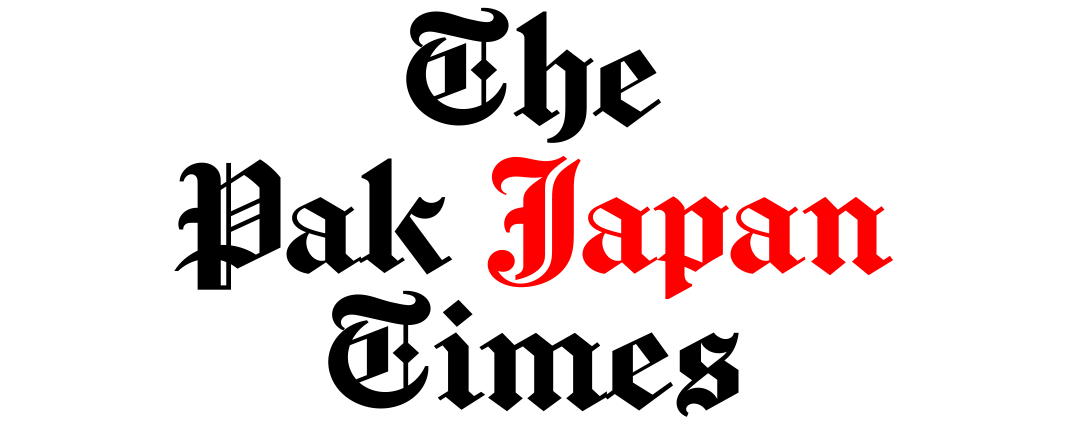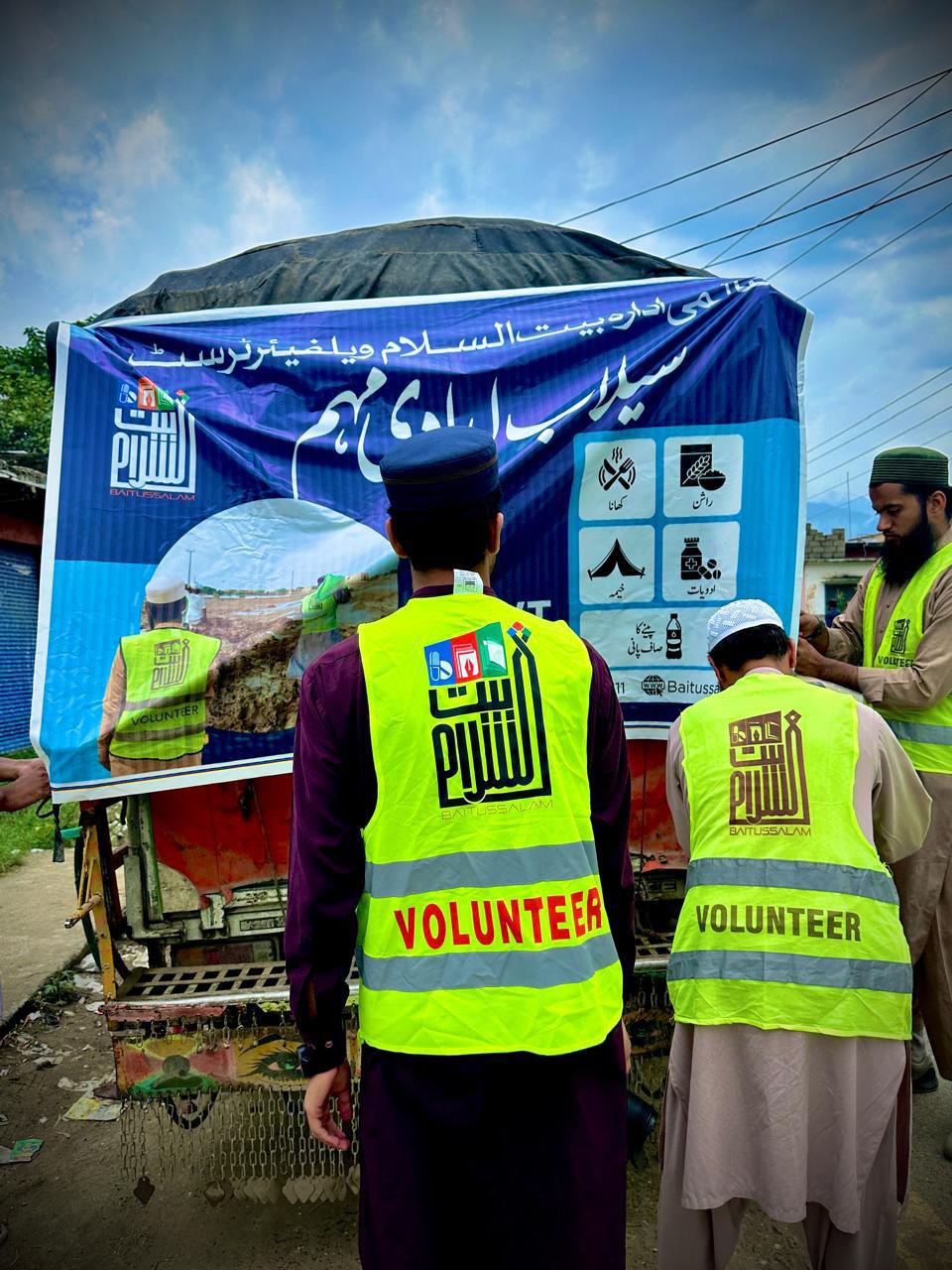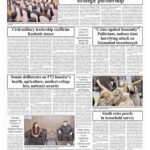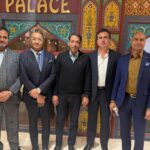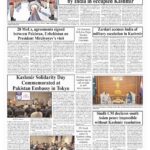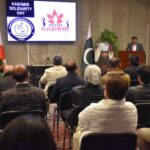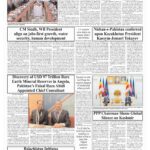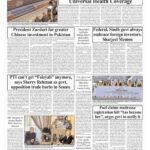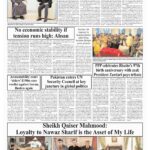By Muhammad Irfan Siddiqui
When floodwaters ravage Pakistan, they do more than submerge homes and farmland; they drown livelihoods, displace millions, and leave entire communities in despair. In such moments, when the state machinery struggles under the weight of calamity, civil society steps forward as the nation’s lifeline. Among the leading lights of this humanitarian effort stands Baitussalam Welfare Trust, an organization whose name has become synonymous with relief, resilience, and rebuilding. At its helm is Maulana Abdus Sattar, a visionary scholar and philanthropist who has transformed compassion into a comprehensive system of service.
This is not just the story of an organization—it is the story of a mission that continues to redefine faith-driven social responsibility in Pakistan.
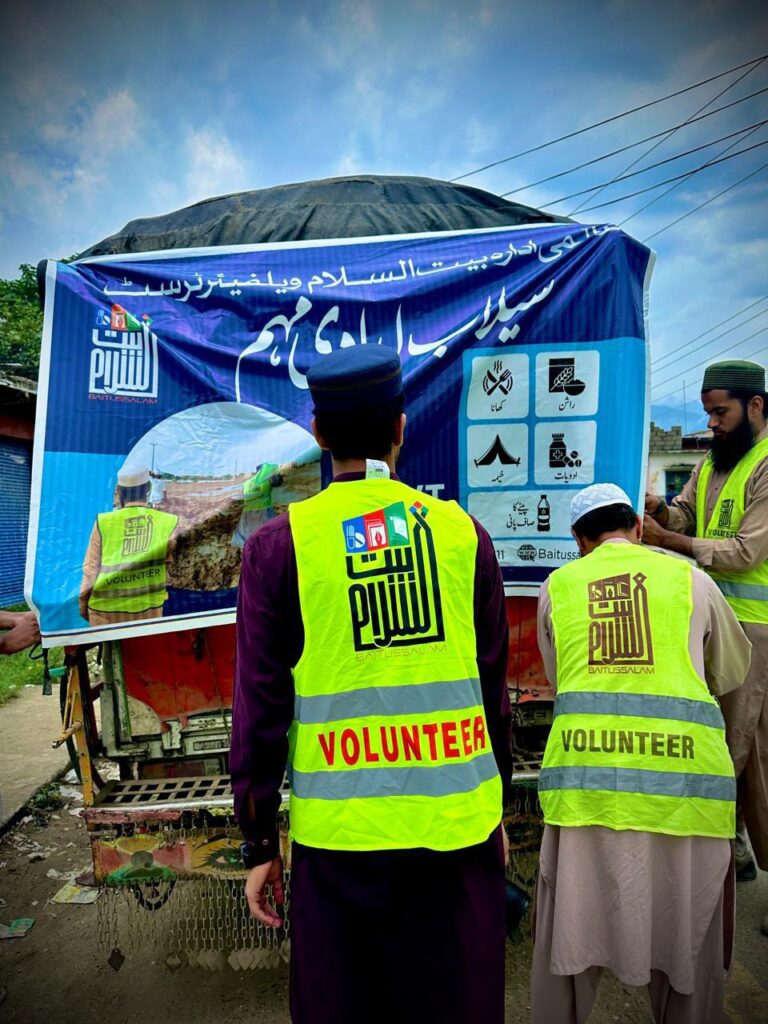
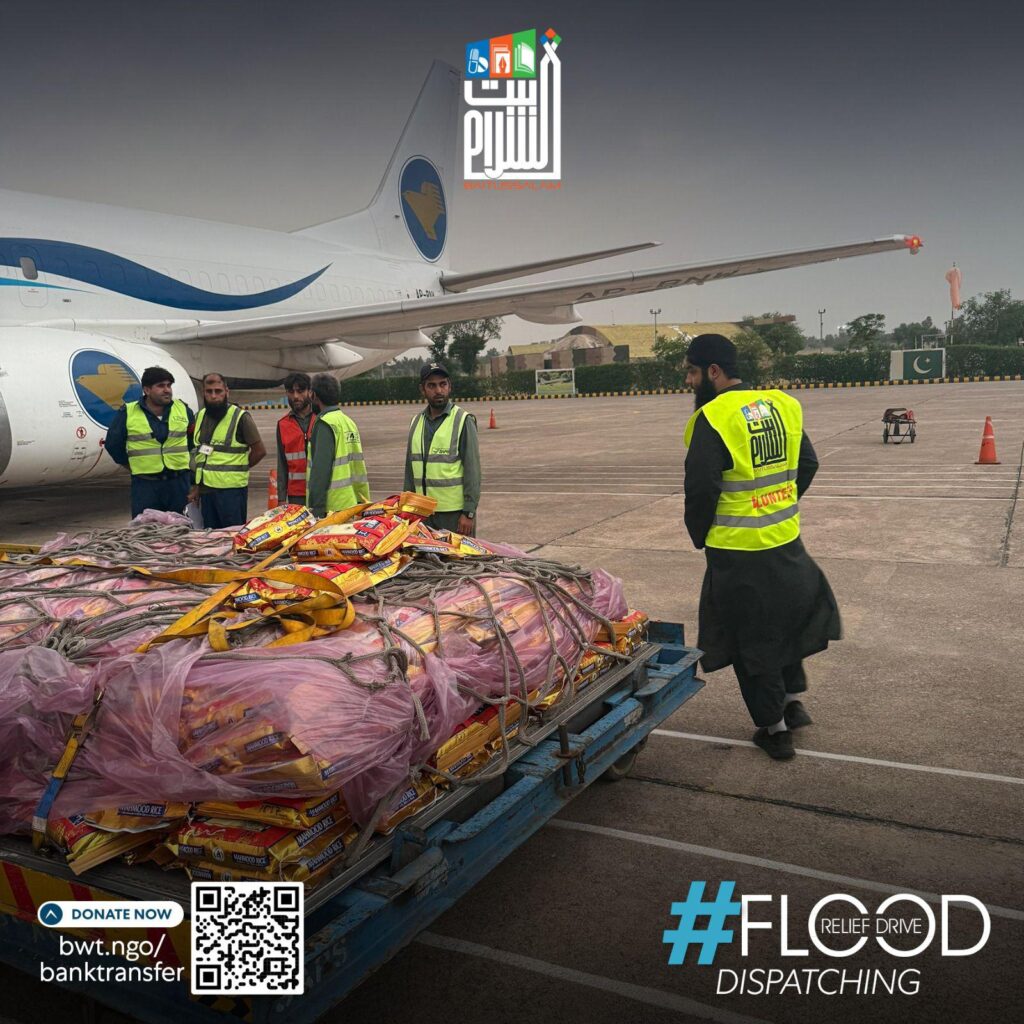
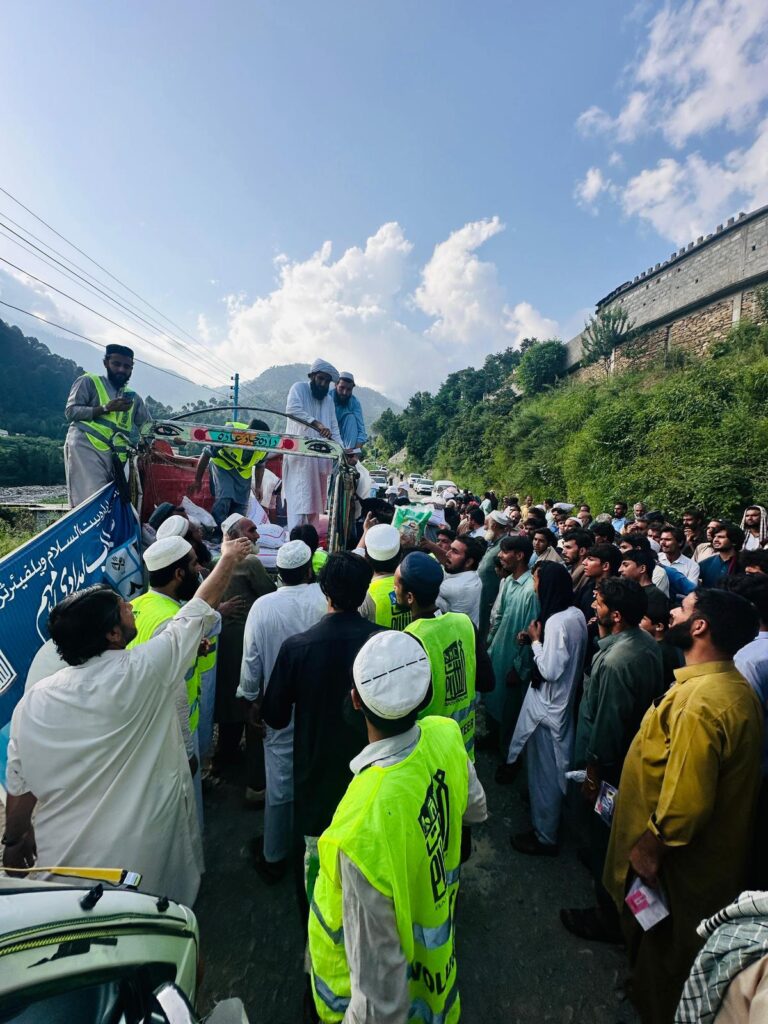
A Legacy of Service in Times of Crisis
The floods of 2010, 2022, and the most recent devastation in 2025 have each marked some of the darkest chapters in Pakistan’s history. Millions of people across Sindh, Balochistan, Punjab, and Khyber Pakhtunkhwa found themselves suddenly homeless, stripped of food security, health facilities, and safe drinking water. While many waited in anguish, Baitussalam teams were often the first to arrive—armed with food packages, clean water, tents, clothing, and medical care.
With a country-wide network of volunteers and branches, Baitussalam has been able to mobilize thousands of relief workers within hours of disaster. Trucks loaded with ration bags, medical kits, and warm bedding set out to flood-affected districts while boats and mobile kitchens followed where roads no longer existed. Victims recall with gratitude the green vests of Baitussalam volunteers who waded through waist-deep waters to deliver bread, rice, and medicine to stranded families.
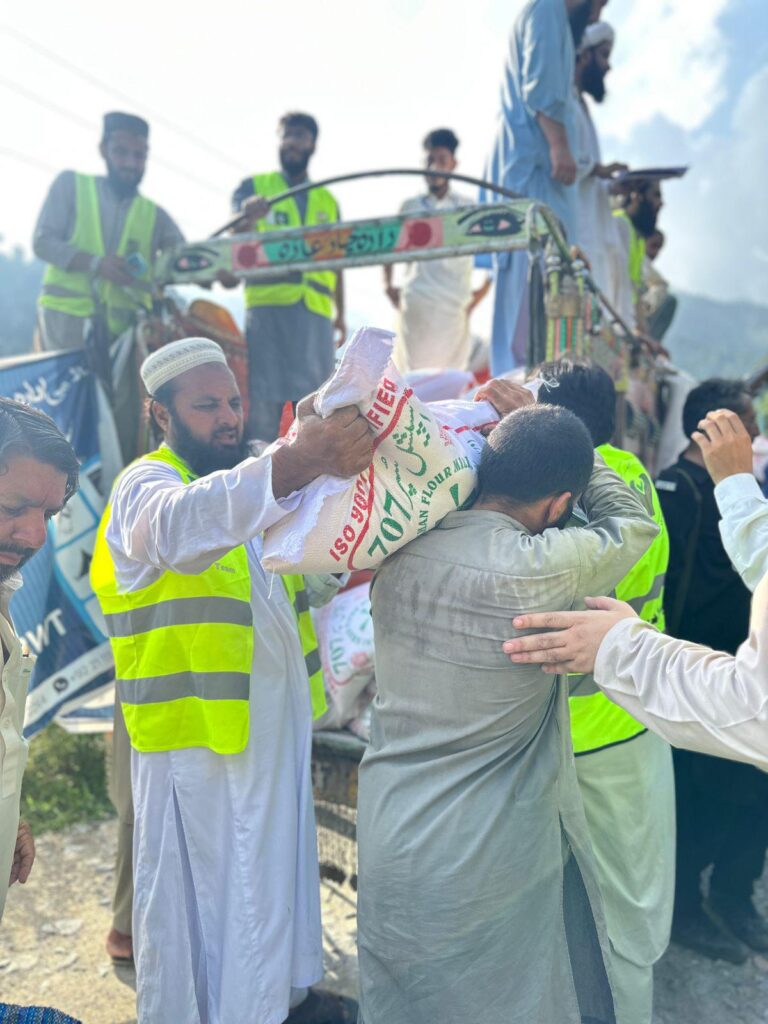
The Vision of Maulana Abdus Sattar
The driving force behind Baitussalam’s success is its president, Maulana Abdus Sattar. A respected scholar and community leader, Maulana Abdus Sattar has always emphasized that religion is not confined to ritual but extends to the service of humanity. Under his leadership, Baitussalam has evolved from a local initiative into an international humanitarian organization, known not only for its efficiency but also for the dignity with which it treats beneficiaries.
“Flood victims are not beggars; they are our brothers and sisters in faith and humanity,” he often reminds his team. This philosophy is reflected in the way aid is distributed—orderly, respectful, and inclusive. Instead of long queues and humiliating handouts, Baitussalam arranges systematic distribution centers where families receive aid with dignity.
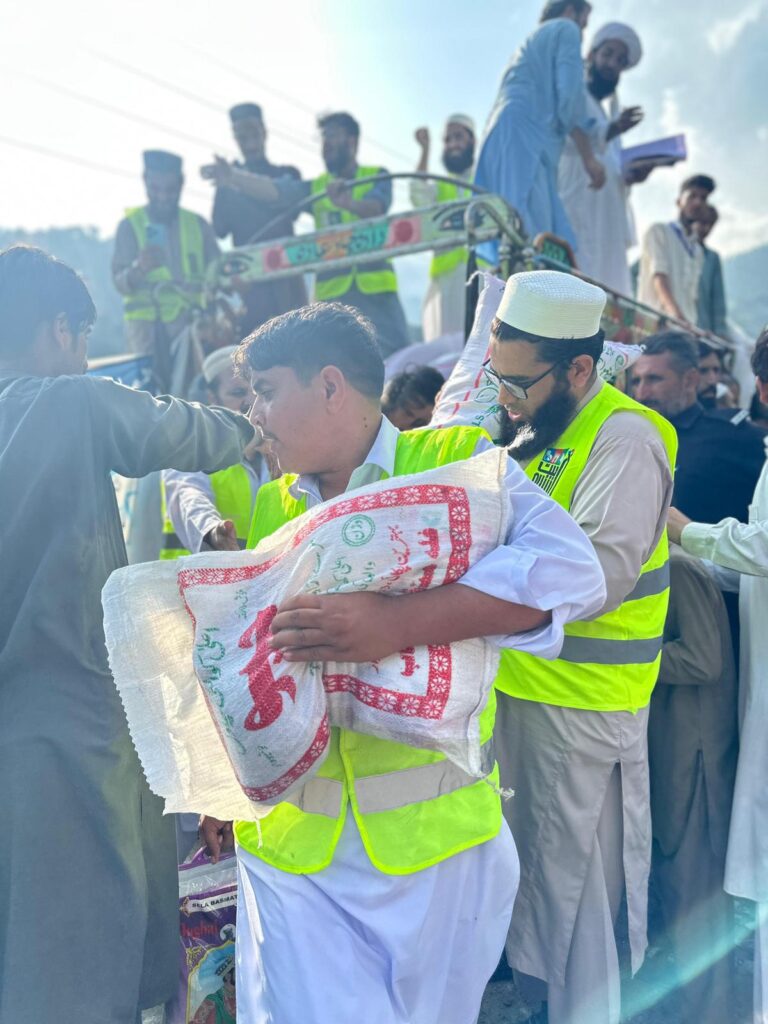
Immediate Relief: Food, Water, and Shelter
In every flood crisis, the first and most urgent needs are food and shelter. Baitussalam has perfected its logistics to ensure swift response. Within days of the 2022 floods, the organization had established massive kitchens in Sindh and Balochistan, serving hot meals daily to tens of thousands. Mobile kitchens traveled to remote, inundated areas where displaced families had no access to cooking facilities.
In addition, Baitussalam distributed ration bags—carefully designed to meet a family’s nutritional needs for an entire month. Each bag contained flour, rice, lentils, cooking oil, tea, sugar, and dry milk. By 2022, the Trust had distributed over 200,000 ration bags in flood-affected zones, and the number has only grown in the 2025 crisis.
Shelter was another urgent priority. Families who had lost everything were provided with tents, tarpaulins, blankets, and bedding to protect them from the scorching sun by day and cold winds by night.
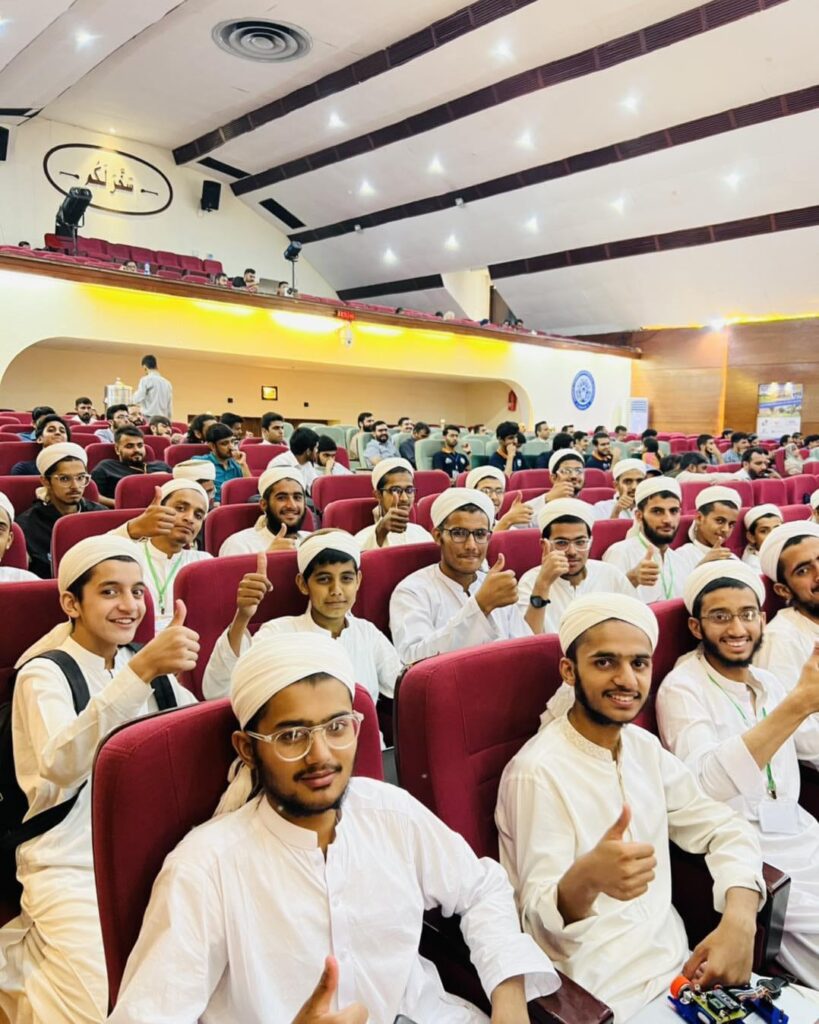
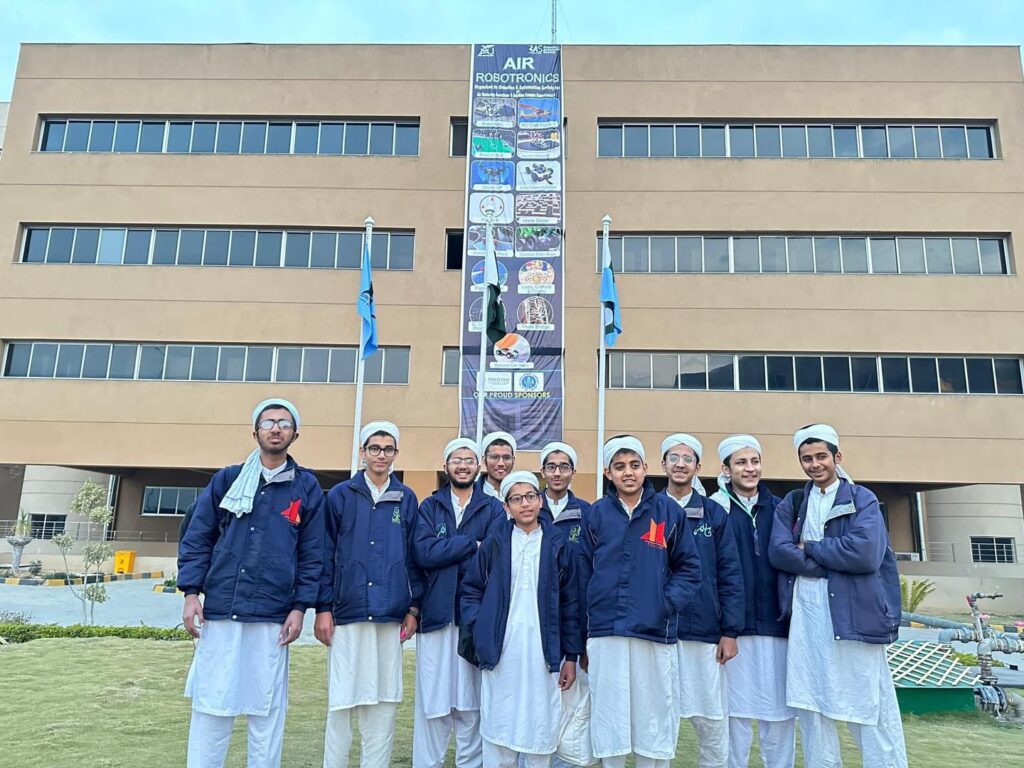
Healthcare in Emergencies
Floods often unleash disease—cholera, malaria, skin infections, and respiratory illnesses spread rapidly in overcrowded relief camps. Baitussalam responded with mobile health units staffed by doctors, paramedics, and nurses. Medical camps were set up in disaster-hit areas, offering free consultations and distributing life-saving medicines.
In collaboration with partner organizations, Baitussalam also arranged vaccination drives for children and pregnant women in flood-hit regions, protecting the most vulnerable from preventable diseases. Special focus was placed on maternal health, ensuring safe deliveries for expectant mothers who had been displaced from their homes.
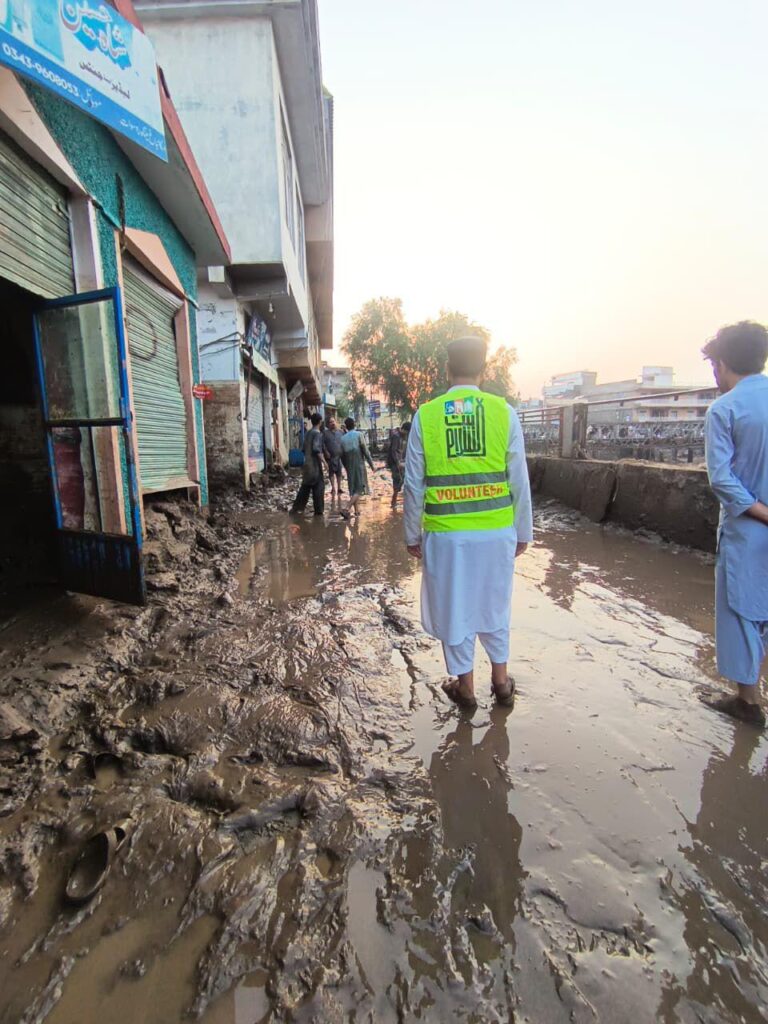
Rebuilding Lives Beyond Relief
While immediate relief is crucial, Maulana Abdus Sattar has always insisted on moving beyond temporary fixes. “Charity is not enough; rehabilitation is our real responsibility,” he asserts. True to this principle, Baitussalam has invested heavily in rehabilitation projects for flood victims.
• Housing Projects: Simple but sturdy homes are built for displaced families, giving them a permanent roof over their heads. Entire villages in Sindh and Balochistan now stand as testimony to Baitussalam’s long-term vision.
• Livelihood Support: Families that lost their crops, livestock, and small businesses are supported with tools, seeds, and livestock so they can stand on their own feet again.
• Schools and Education: In many flood-hit areas, schools were destroyed. Baitussalam set up temporary learning centers and distributed books, uniforms, and school bags to children so that an entire generation would not lose its future to floods.
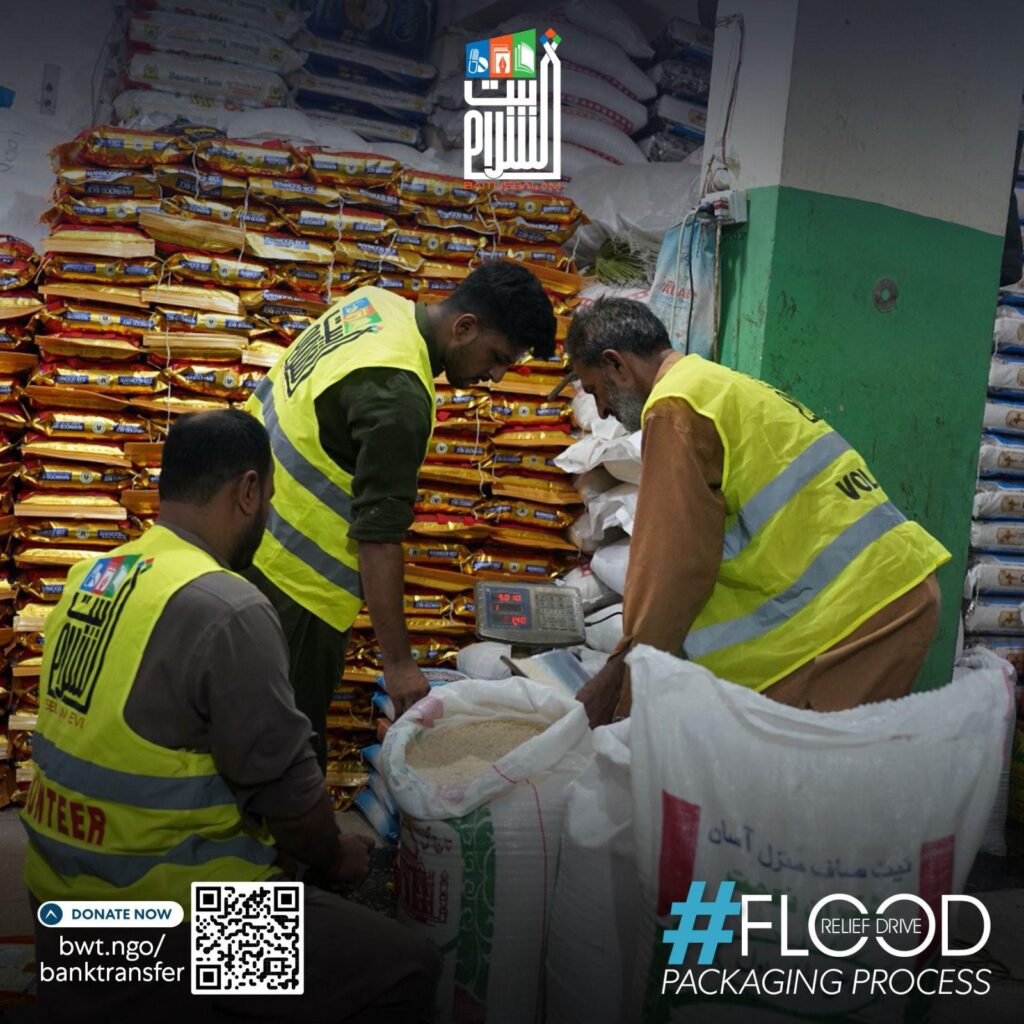
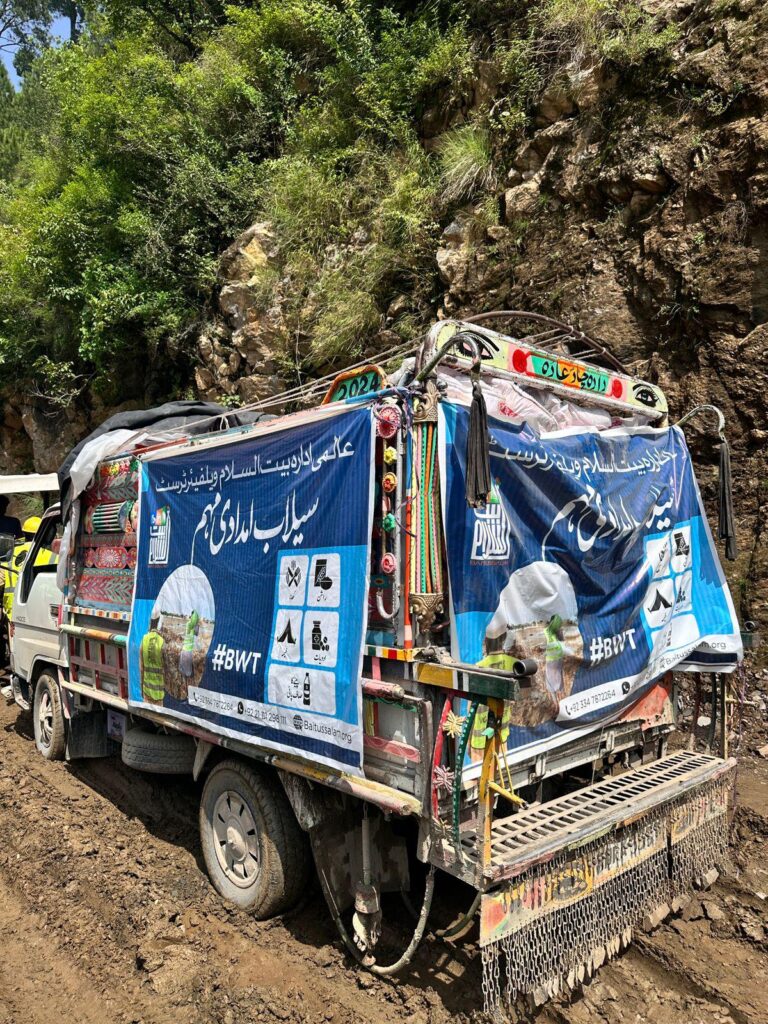
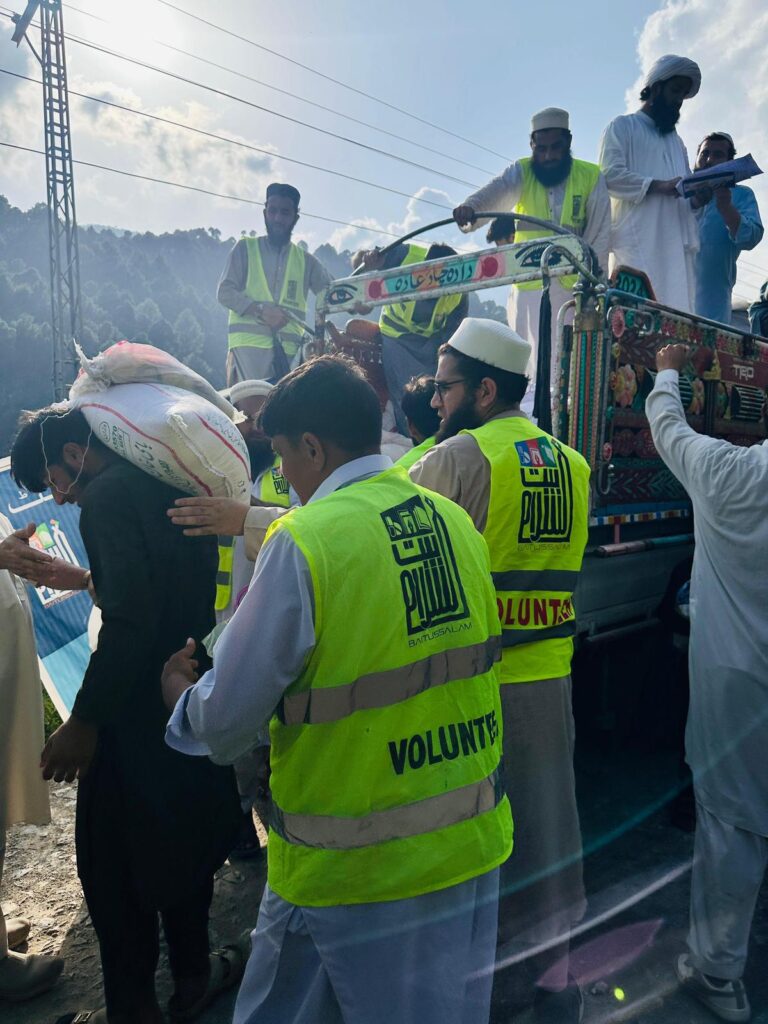
International Reach and Transparency
One of Baitussalam’s greatest strengths is its international credibility. The organization’s projects receive support from donors across the Middle East, Europe, and North America. This trust is rooted in the organization’s transparency and accountability. Every rupee donated is meticulously documented, and donors are given detailed reports, photographs, and even GPS coordinates of the projects they supported.
This international support has enabled Baitussalam to carry out relief operations on a scale comparable to global NGOs, but with the cultural sensitivity and grassroots access that only a local faith-driven organization can provide.
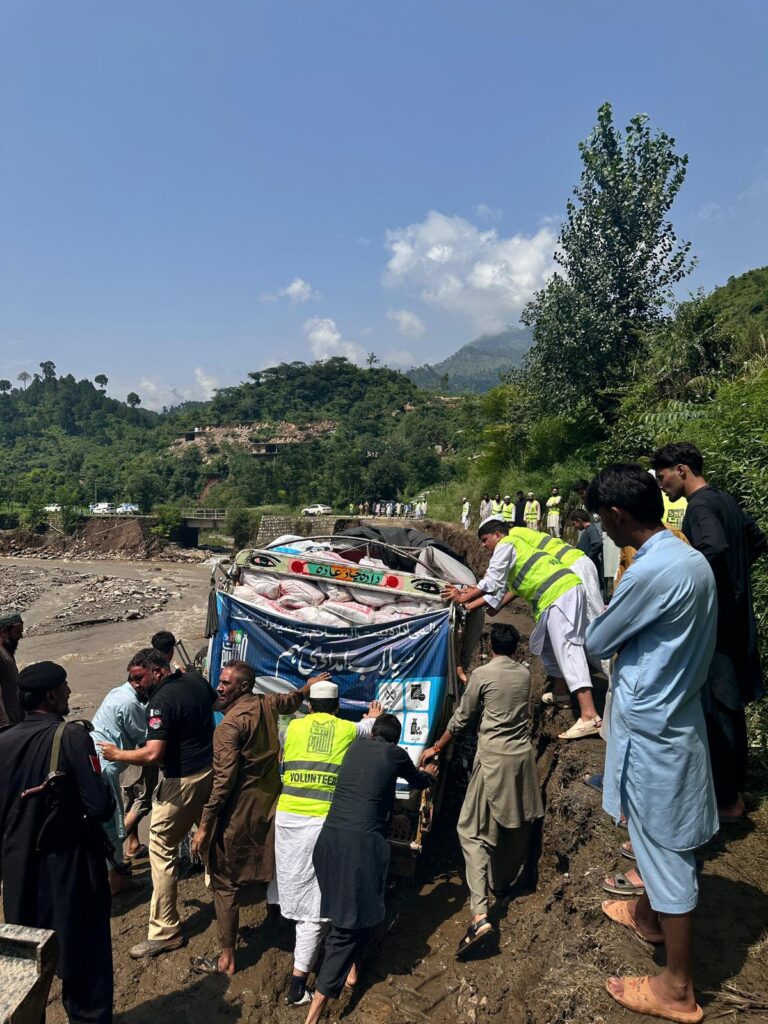
Stories of Hope
Behind every statistic are human stories that reflect the true impact of Baitussalam’s work. In the 2022 floods, an elderly woman in Dadu wept as she received her ration bag, saying: “My own relatives left me behind, but these young men came for me.” In Balochistan, children displaced by floods were seen playing under the tents provided by Baitussalam, their laughter a reminder that even in despair, hope can be rebuilt.
These stories echo in 2025 as well, where once again the Trust has mobilized with the same intensity, proving that its commitment is not bound by time or place.
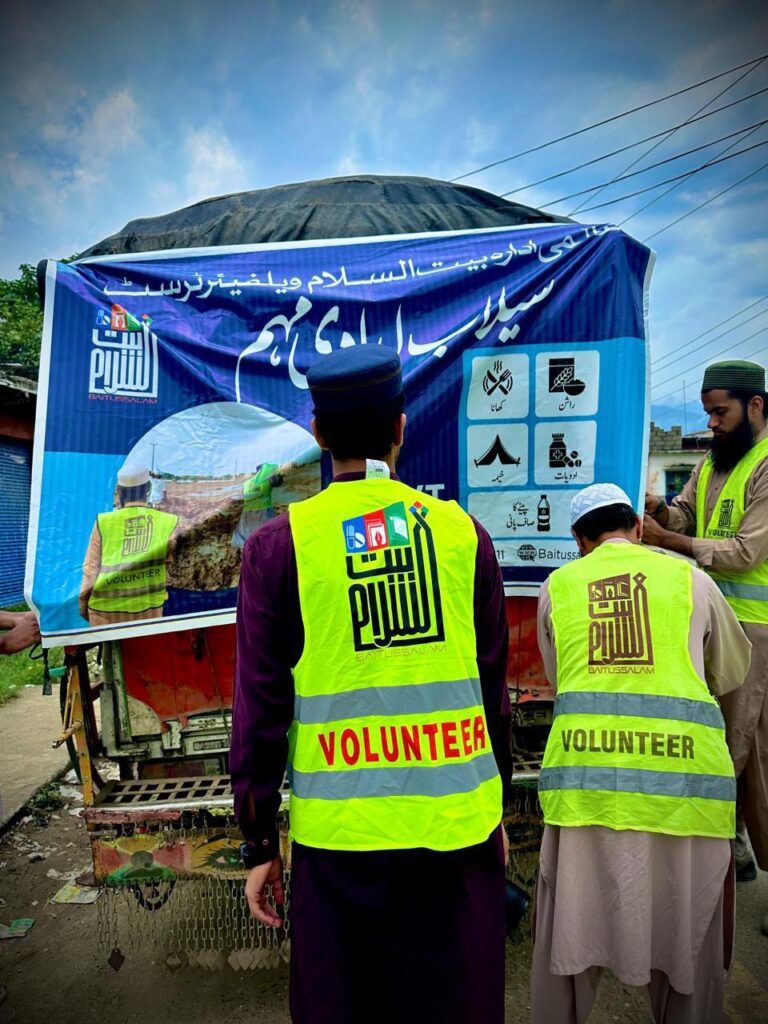
Honoring Maulana Abdus Sattar
The story of Baitussalam cannot be told without honoring the leadership of Maulana Abdus Sattar. His humility is as striking as his achievements. Despite presiding over one of Pakistan’s largest welfare networks, he continues to live simply, prioritizing service over recognition.
Under his leadership, Baitussalam has earned respect not only in Pakistan but across the Muslim world as a model of modern, professional, and faith-based humanitarianism. His emphasis on dignity, sustainability, and accountability has redefined what it means to do welfare in Pakistan.
A Model for the Future
As climate change threatens to make floods more frequent and intense in Pakistan, the role of organizations like Baitussalam becomes even more critical. Governments may draft policies and international agencies may offer aid, but it is trusted local organizations that can deliver swiftly, efficiently, and compassionately.
Baitussalam’s model—combining faith, professionalism, and community participation—offers a blueprint for how Pakistan can respond to future disasters.
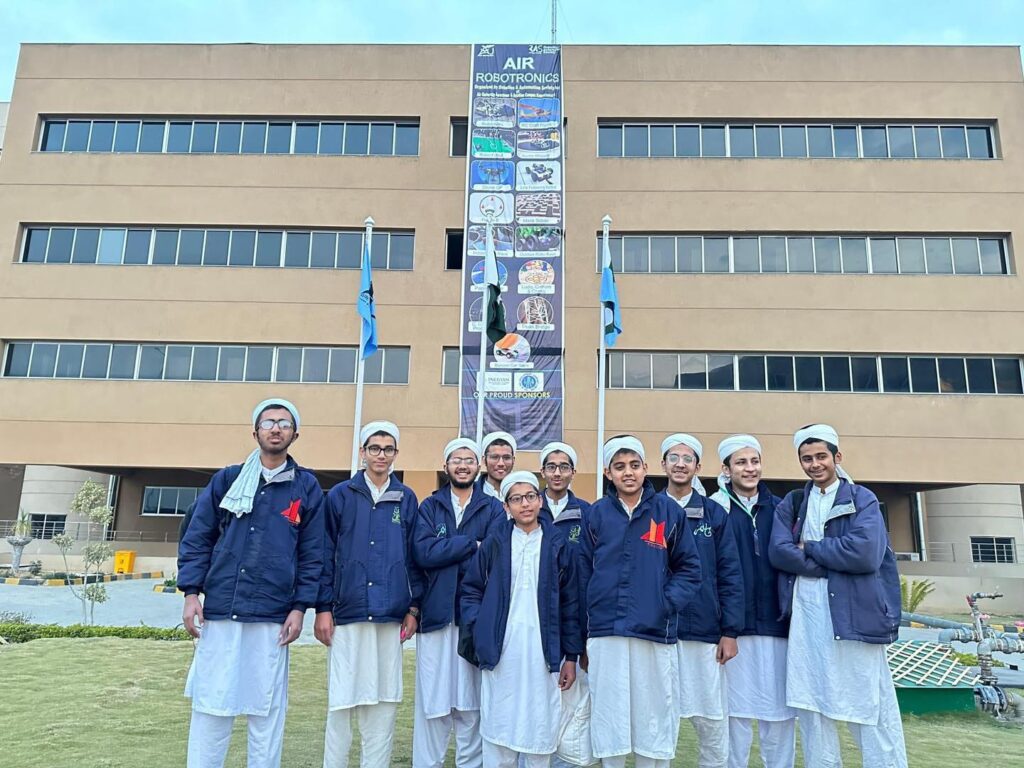
Conclusion
In the face of devastating floods, when homes vanish and hope seems impossible, Baitussalam Pakistan has been a lifeline for millions. Guided by the vision of Maulana Abdus Sattar, the organization has transformed the despair of flood victims into stories of survival, resilience, and dignity. From food and shelter to education and rehabilitation, its holistic approach ensures that victims are not only saved but also empowered to rebuild their lives.
Baitussalam’s work reminds us that the essence of humanity lies in service, and the true measure of leadership is not power but compassion. As Pakistan braces for future challenges, the nation can take comfort in knowing that Baitussalam and Maulana Abdus Sattar will continue to stand at the frontline—serving humanity, one flood victim at a time.
